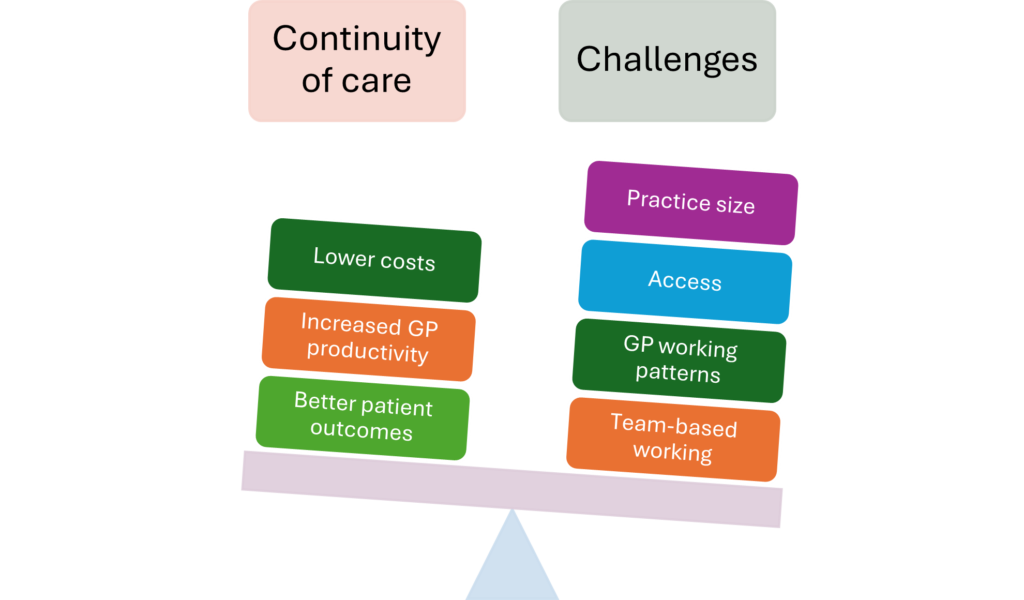Exeter Collaboration for Academic Primary Care (APEx) Blog
Exeter Collaboration for Academic Primary Care (APEx) Blog
Posted by ma403
18 December 2024I’m Nada Khan, a GP and an NIHR Academic Clinical Lecturer based within APEx. I have recently been awarded a Wellcome Accelerator Award, which is a personal development award open to researchers of Black, Bangladeshi and Pakistani heritage to allow them to build their career and achieve the next stage after their PhD. The great thing about this award is that it is highly flexible, and can be used not only for research but research-adjacent activities that the applicant thinks will help them with their career development. The scheme has provided me with £130,000 of funding to undertake a research project, training and development, and a secondment within a health policy unit.
A focus on continuity
Continuity of care in has been a research strength within APEx alongside the St Leonard’s Research Practice for many years. Research has shown that higher relational continuity of care is associated with lower mortality, fewer hospital admissions, more satisfied patients and less risky prescribing of medication in the elderly. But, despite these positive outcomes, relational continuity is declining in English general practice. Practices that have moved away from personal lists cite perceived challenges to moving back to a model prioritising relational continuity. These challenges include the recruitment and retention ‘crisis’ in general practice, GP working patterns towards fewer patient-facing clinical hours, the perceived tension between continuity and access, and increasing team-based models of care within the primary care multi-disciplinary team (Figure 1)

Some practices, however, are able to prioritise and achieve high levels of relational continuity. But, programmes to increase continuity of care are complex, and their success depends on how it is implemented within a specific general practice. The research project within my Accelerator grant funding aims to explore this complexity through a realist evaluation to look at general practices that are achieving high levels of continuity. We will carry out an in-depth look within each practice to better understand what works, for whom, and in what circumstances, to better inform how other practices could apply similar strategies to improve their continuity of care.
Personal development
A big focus of the Accelerator award is to allow each applicant to build a plan towards getting them to the next career stage. I wanted to focus on building specific skills and experience in realist methods, health policy and primary care leadership. I will attend the Oxford Realist Reviews and Realist Evaluation course in 2025, the Health Economics and Policy course at the London School of Economics, and will apply to the Oxford International Primary Care Research Leadership Programme towards the end of my two year award.
Research into policy and impact
I have also planned a six month placement within the Health Foundation, an independent charity and think thank that aims to bring out change and improvements in health care for people in the UK. One of the key priorities of the Health Foundation’s work is to provide evidence and analysis to improve health and care policy by producing research and analysis, then working with stakeholders and policy makers to build solutions to improve the health care system. I will embed myself within the Health Foundation policy team for a six-month period at the end of my Accelerator award to learn more about how to translate evidence into policy.
The future
The Wellcome Accelerator award is a chance for me to propel myself to the next stage of my career. I’m hoping that the skills I gain in new research methods, and my specific training and development plan and networks will help me to achieve just that.
